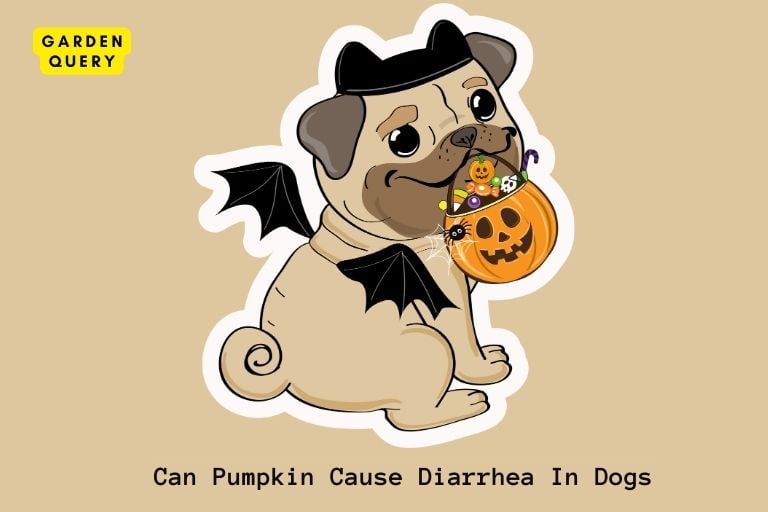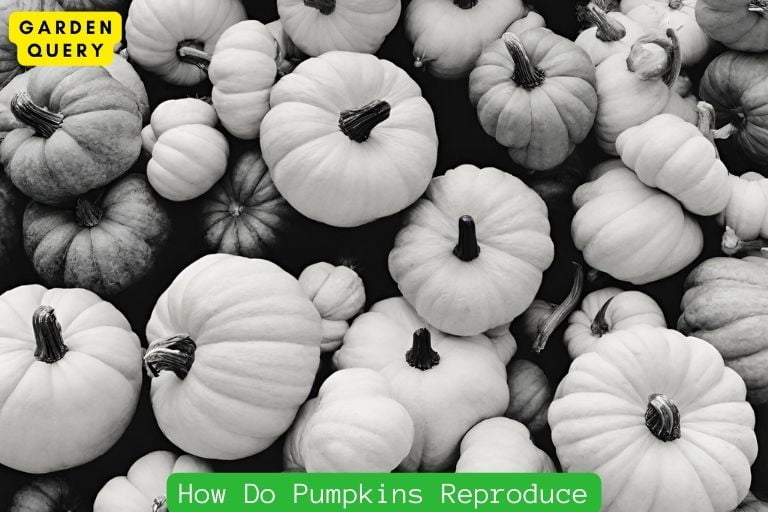Can Pumpkin Cause Diarrhea In Dogs?
Yes, pumpkin can cause diarrhea in dogs if fed excessively, but when used in moderation, it is a beneficial dietary addition for canine digestive health.
While pumpkin is known for its digestive benefits in dogs, an excessive amount can lead to diarrhea due to its high fiber content. Introducing pumpkin into a dog’s diet should be gradual and controlled, as an abrupt increase in fiber may disrupt their digestive system.
Pumpkin’s soluble fiber helps regulate bowel movements, making it a common remedy for both diarrhea and constipation in dogs. Moderation is crucial, and consulting with a veterinarian about appropriate serving sizes is advisable. Overall, when incorporated responsibly, pumpkin can be a valuable tool for maintaining a healthy and well-functioning digestive system in dogs.
Key Takeaway
Can Pumpkin Cause Diarrhea in Dogs: Myth vs. Fact
Myth: Pumpkin causes diarrhea in dogs
There is a common belief among some pet owners that feeding pumpkin to dogs can actually cause diarrhea. However, this is a myth! Pumpkin is actually known to have beneficial effects on a dog’s digestive system, including helping to alleviate diarrhea.

Fact: Pumpkin can actually help alleviate diarrhea in dogs
Pumpkin is rich in fiber, which has a binding effect on the stool and can help regulate bowel movements. If your dog is suffering from diarrhea, a small amount of canned or cooked plain pumpkin can be added to their diet to help firm up their stools. It is important to note that the pumpkin should not contain any added sugars, spices, or other additives, as these can potentially worsen the digestive issue.
Additionally, pumpkin is also a great source of vitamins and minerals, such as vitamin A, vitamin C, and potassium, which can support overall digestive health and boost the immune system. The high water content in pumpkin can also help keep your dog hydrated during bouts of diarrhea.
To add pumpkin to your dog’s diet, start with a small amount, such as a teaspoon for small dogs or a tablespoon for larger dogs. Monitor their response and gradually increase the amount if needed. It is always advisable to consult with your veterinarian before making any changes to your dog’s diet, especially if they have a history of digestive issues or are on any medication.
Remember, while pumpkin can help alleviate diarrhea in dogs, it is not a substitute for proper veterinary care. If your dog’s diarrhea persists or is accompanied by other concerning symptoms, such as vomiting, lethargy, or loss of appetite, it is important to seek veterinary attention as these could be signs of a more serious underlying condition.
In conclusion, the myth that pumpkin causes diarrhea in dogs is just that, a myth. Pumpkin can actually be beneficial for dogs with diarrhea, thanks to its fiber content and nutrient profile. However, it is important to use plain pumpkin without any additives and to consult with a veterinarian before making any dietary changes for your furry friend.
Remember to always prioritize your dog’s health and well-being and seek professional advice when needed.
Benefits of Pumpkin for Dogs with Digestive Issues
Pumpkin as a natural remedy for diarrhea in dogs
If you’ve ever owned a dog, chances are you’ve come across the dreaded issue of diarrhea. It’s not only uncomfortable for your furry friend, but it can also be a cause for concern. One natural remedy that has gained popularity among dog owners is pumpkin. Yes, you heard it right, pumpkin!
Pumpkin is packed with fiber, which can help regulate your dog’s digestive system and relieve diarrhea. The soluble fiber in pumpkin absorbs excess water in the intestines, which can help firm up your dog’s stool. Additionally, pumpkin contains nutrients such as vitamin A, potassium, and iron, which can support digestive health and promote overall well-being in dogs.
When using pumpkin as a remedy for diarrhea, it’s important to choose plain canned pumpkin without any additives or sweeteners. You can start by adding a small amount, about a teaspoon or two, to your dog’s regular meal. Monitor your dog’s response and gradually increase the amount if necessary. It’s important to consult with your veterinarian to determine the appropriate dosage for your specific dog, as the amount of pumpkin needed can vary depending on the size and breed of your pet.
How to introduce pumpkin to your dog’s diet
Introducing pumpkin to your dog’s diet is a fairly simple process. Follow these steps to ensure a smooth transition:
- Start with small amounts: Begin by adding a small amount of pumpkin to your dog’s regular food. This allows your dog’s digestive system to adjust gradually.
- Monitor for any adverse reactions: Keep a close eye on your dog for any changes in stool consistency or behavior. If you notice any adverse reactions, such as increased digestive upset or allergies, discontinue the use of pumpkin and consult your veterinarian.
- Gradually increase the amount: If your dog tolerates the initial small amount of pumpkin well, you can gradually increase the serving size. Monitor your dog’s response and adjust accordingly.
- Stick to plain pumpkin: Avoid using pumpkin pie filling or other flavored varieties, as they often contain added sugars and spices that can be harmful to your dog.
In addition to its potential benefits for digestive issues, pumpkin can also be incorporated into your dog’s diet as a regular treat or supplement. It can provide a healthy source of hydration, as pumpkin contains about 90% water. Plus, its low-calorie content makes it a great option for dogs looking to maintain a healthy weight.
As always, it’s essential to consult with your veterinarian before making any significant changes to your dog’s diet or introducing new supplements. They can provide guidance tailored to your dog’s specific needs and ensure that pumpkin is a suitable and safe option for your furry friend.
In conclusion, pumpkin can be a natural remedy for diarrhea in dogs due to its fiber content and digestive health benefits. When introducing pumpkin to your dog’s diet, start with small amounts and monitor for any adverse reactions. Remember to choose plain canned pumpkin without additives or sweeteners. Consult with your veterinarian for specific guidance on dosage and to ensure that pumpkin is a safe and appropriate option for your dog. With the right approach, pumpkin can help alleviate digestive issues and promote a healthy and happy pup!
Risks and Precautions when Feeding Pumpkin to Dogs
Feeding pumpkin to your furry companion can be a healthy addition to their diet. Not only is pumpkin packed with vitamins and minerals, but it is also known for its high fiber content, which can aid in digestion and regulate bowel movements in dogs. However, it is important to be aware of the potential risks and take proper precautions when introducing pumpkin into your dog’s diet.
Possible side effects of feeding too much pumpkin to dogs
While pumpkin is generally safe for dogs, there are some potential side effects that you should be aware of. Feeding excessive amounts of pumpkin to your dog can lead to an upset stomach and diarrhea. This is because of the high fiber content in pumpkin, which can cause digestive issues if consumed in large quantities. It is important to introduce pumpkin gradually into your dog’s diet and monitor their response to ensure they do not experience any adverse reactions.
How to properly incorporate pumpkin into your dog’s diet
To avoid any potential digestive issues, it is important to follow these guidelines when incorporating pumpkin into your dog’s diet:
- Start small: Begin by adding a small amount of pureed pumpkin (plain, without any added sugars or spices) to your dog’s regular food. Monitor their response to ensure they tolerate it well.
- Gradually increase the serving size: If your dog tolerates the small amount of pumpkin well, you can gradually increase the serving size over time. However, always keep in mind that moderation is key.
- Consult with your veterinarian: If you have any concerns or questions about feeding pumpkin to your dog, it is always best to consult with your veterinarian. They can provide guidance tailored to your dog’s specific needs and ensure that pumpkin is a suitable addition to their diet.
- Monitor your dog’s bowel movements: Keep an eye on your dog’s stool consistency. If you notice any sudden changes or diarrhea after introducing pumpkin, it may be an indication that you are feeding too much. Adjust the serving size accordingly or consult with your veterinarian for further guidance.
- Choose the right type of pumpkin: When feeding pumpkin to your dog, opt for pureed pumpkin or plain canned pumpkin without any added ingredients such as sugar or spices. Avoid using pumpkin pie filling, as it often contains added sugars and spices that can be harmful to dogs.
Remember, every dog is unique, and what works well for one may not work for another. It is important to monitor your dog’s response and make adjustments as needed. As with any changes to your dog’s diet, it is always best to consult with your veterinarian to ensure their overall health and well-being.
Other Causes of Diarrhea in Dogs to Consider
If you’ve noticed that your furry friend has been experiencing diarrhea after consuming pumpkin, it’s essential to rule out other causes as well. Diarrhea in dogs can be caused by a variety of factors, and it’s essential to understand them to ensure your pet’s health and well-being.
Common causes of diarrhea in dogs
- Dietary changes: Sudden changes in your dog’s diet can lead to digestive upset and diarrhea. Introducing new food or treats without a gradual transition can disrupt their digestive system.
- Food allergies or intolerances: Just like humans, dogs can develop allergies or intolerances to certain ingredients in their food. These allergies can cause diarrhea, as well as other symptoms such as itching, vomiting, and skin rashes.
- Parasites: Intestinal parasites, such as worms, can cause diarrhea in dogs. These parasites can be contracted through contaminated soil, food, or water.
- Bacterial or viral infections: Dogs can contract bacterial or viral infections that can lead to diarrhea. Common examples include parvovirus, salmonella, and E. coli infections.
- Stress or anxiety: Dogs can experience diarrhea as a result of stress or anxiety. Events such as moving to a new home, changes in routine, or loud noises can trigger digestive upset.
When to consult a veterinarian
While pumpkin is generally safe for dogs and can be used as a natural remedy for mild diarrhea, it’s essential to monitor your pet’s condition. If the diarrhea persists for more than a day or is accompanied by other concerning symptoms such as vomiting, lethargy, or loss of appetite, it’s time to consult a veterinarian.
A vet can examine your dog, run necessary tests, and provide a proper diagnosis and treatment plan. They may recommend medication, dietary changes, or further tests to identify the underlying cause of the diarrhea.
It’s also crucial to consult a vet if your dog shows signs of dehydration, such as excessive panting, dry gums, or decreased urine output. Dehydration can occur quickly in dogs with diarrhea and requires prompt medical attention.
Remember, each dog is unique, and what works for one may not work for another. While pumpkin can be beneficial for mild cases of diarrhea, it’s important to seek professional advice to ensure the best outcome for your furry friend’s health.
- Best Therapists In Dallas - February 1, 2024
- Holly Willoughby Husband: Holly Willoughby’s Love Story - January 30, 2024
- Holly Willoughby Dress: 5 Style Secrets and 7 Must-Know Career Milestones - January 30, 2024





